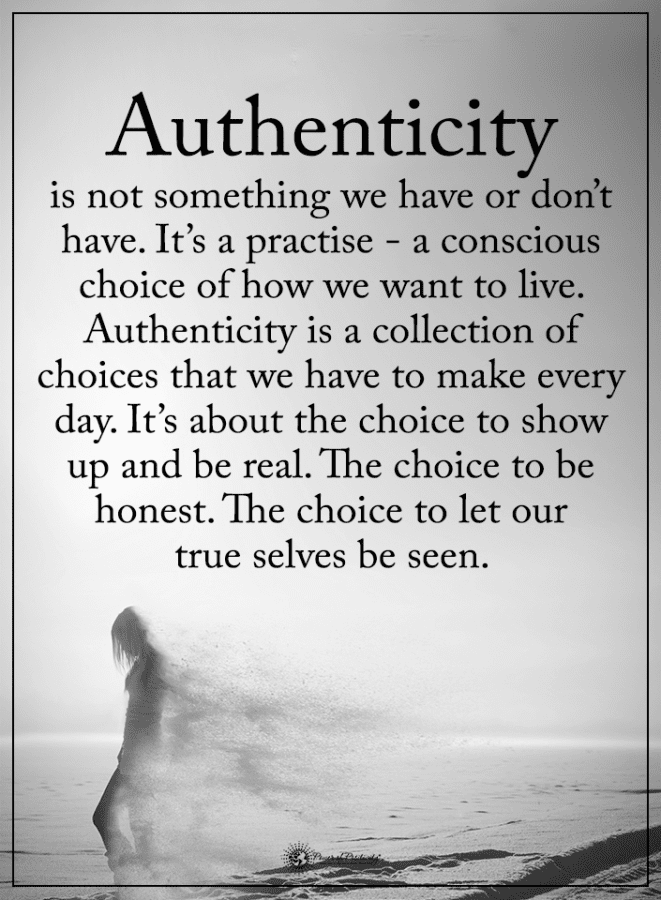Brene Brown’s TED talk presentation on “The power of vulnerability” is one of the top five most popular with just over 33 million views. Why has Brown’s TED Talk become so widespread? As it turns out, human beings – as deeply social creatures, are always searching for a way to improve their relationships. (Who knew, right? **Sarcasm**)
“So very quickly – really about six weeks into this research – I ran into this unnamed thing that absolutely unraveled (human) connection in a way that I didn’t understand or had never seen.”
At the very beginning of the presentation, Brown flashes a slide with the quote “If you can’t measure it, it doesn’t exist.”
Brown, being a social worker – a profession that, according to her, lives by the mantra “Lean into the discomfort of the work,” saw this research-based approach to analyzing and measuring the complexity of human interaction a fascinating draw. She wanted to know why a human connection is– at times – an arduous path.
Connection is why we’re all here. It’s what gives meaning and purpose to our lives. This is what it’s all about.” ~ Brene Brown
The One Variable
Brown spent six years “trying to deconstruct shame” and vulnerability. She explains the process – and her eventual discovery:
“My one year turned into six years: Thousands of stories, hundreds of long interviews, focus groups … people were sending me journal pages and sending me their stories – thousands of pieces of data in six years … I wrote a book, I published a theory, but something was not okay.”
This setback of her life’s work – of “something not okay” – led the way to her most important discovery.
“There was only one variable that separated the people who have a strong sense of love and belonging and the people who really struggle for it. And that was, the people who have a strong sense of love and belonging believe they’re worthy of love and belonging.”
This absence of “love and belonging” manifests into loneliness, social ineptitude, and conflict, with plenty of arguments along the way.
“The Courage to Be Imperfect”
Midway through her TED Talk, Brown made an additional discovery: people who have a strong sense of compassion, love, and empathy have “the courage to be imperfect.” Deep connections with other people will always prove much more challenging without the ability to make yourself somewhat comfortable with vulnerability.
This courage to be imperfect also applies to how we treat ourselves – and, of course, our most intimate relationships.
The Six Words
The ability to be vulnerable inevitably leads to conflict – both internally and with others. To avoid this “icky” feeling of vulnerability, we tell ourselves stories. We rationalize, we make excuses, and we catastrophize.
Here’s an all-too-common example:
We’re not feeling particularly good about how we look one morning. We take one look in the mirror and say to ourselves “Ew,” and ruminate about how “everyone” is going to think we’re ugly.
The story you just told yourself in this hypothetical scenario is B.S. The story that you just self-narrated is complete crap. And this crap not only affects you, but your relationships as well.
These negative affirmations will, whether we realize it or not, negatively impact nearly every interaction we have that day. As self-esteem suffers, our relationships suffer right along with it.
The problem: instead of saying “oh, what I’m thinking is B.S.” and just moving on, many of us continue to feel these feelings and think these thoughts.
The solution? Challenge the narrative. All it takes are six words:
“The story I’m making up is”….
Followed up by the reason for your anger in the first place. According to Dr. Brown, these six words can resolve almost any internal or external conflict. How? By accepting something that many of us shy away from: vulnerability.
Conflict-wise, it demonstrates your willingness to take responsibility for the part you played in the conflict. This action lowers the guard of the other person (and yourself) – a crucial component for easing the friction that accompanies disagreement.
Not only will these six words help resolve pretty much any conflict, but your self-esteem and outlook will also take a 180-degree turn.
According to Brown, it isn’t always easy to figure out what to say in the midst of a disagreement with yourself or others. This is where asking three fundamental questions may be able to help:
– What am I really feeling? What part did I play?
– What do I need to know about the others involved?
– What are the facts, and what are my assumptions?
Brown makes a poignant final point about an internal or external conflict in her book Rising Strong:
“…the good news is that we can rewrite these stories. We just have to be brave enough to reckon with our deepest emotions.”
May we all find the elusive, infinitely-powerful trait: courage. More specifically, the courage to be ourselves.


















